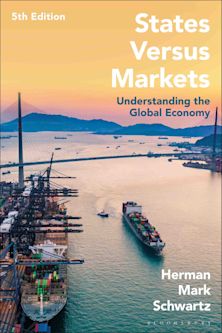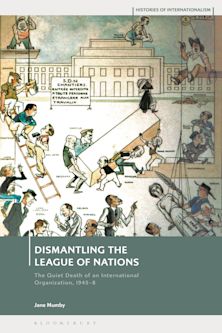- Home
- ACADEMIC
- Politics & International Relations
- International Relations - Other
- Latinos and U.S. Foreign Policy
Latinos and U.S. Foreign Policy
Representing the 'Homeland?'
Rodolfo O. de la Garza (Anthology Editor) , Harry P. Pachon (Anthology Editor) , Fernando Cepeda Ulloa (Contributor) , Jorge I. Domínguez (Contributor) , Peter Hakim (Contributor) , René Antonio León Rodríguez (Contributor) , Gustavo Moha (Contributor) , Manuel Orozco (Contributor) , Adrián Pantoja (Contributor) , Carlos A. Rosales (Contributor) , Peter F. Romero (Contributor) , Bernardo Vega (Contributor)
Latinos and U.S. Foreign Policy
Representing the 'Homeland?'
Rodolfo O. de la Garza (Anthology Editor) , Harry P. Pachon (Anthology Editor) , Fernando Cepeda Ulloa (Contributor) , Jorge I. Domínguez (Contributor) , Peter Hakim (Contributor) , René Antonio León Rodríguez (Contributor) , Gustavo Moha (Contributor) , Manuel Orozco (Contributor) , Adrián Pantoja (Contributor) , Carlos A. Rosales (Contributor) , Peter F. Romero (Contributor) , Bernardo Vega (Contributor)
This product is usually dispatched within 3 days
- Delivery and returns info
-
Free CA delivery on orders $40 or over
You must sign in to add this item to your wishlist. Please sign in or create an account
Description
How do the foreign policy priorities of Latino Americans relate to U.S. foreign policy in general and U.S. policy toward Latin America in particular? Public policy elites and the general U.S. public doubt the depth of Latino patriotism, suspecting Latinos of representing their homelands' interests over and above those of the U.S. Through a series of studies surveying Latinos throughout the U.S., this book demonstrates that Latino Americans are more like other Americans with respect to foreign policy than is popularly assumed. At the same time, differences between and among various Latino communities (e.g., those with ties to Colombia, the Dominican Republic, El Salvador, and Mexico) exist, and may be a source of growing Latino political power-perhaps more relevant to domestic politics than to foreign policy.
Table of Contents
Chapter 2 Introduction
Part 3 Latinos and Foreign Policymaking
Chapter 4 Foreign Policy Perspectives of Hispanic Elites
Chapter 5 Family Ties and Ethnic Lobbies
Part 6 Home Country Responses to "Family Ties and Ethnic Lobbies"
Chapter 7 The Exceptionality of Colombians
Chapter 8 The Political Role of Dominicans Residing in th United States
Chapter 9 El Salvador's Relations with Salvadoran Emigrants
Chapter 10 Relations with the Mexican Diaspora
Part 11 Latinos as an Ethnic Lobby: U.S. Perspectives
Chapter 12 The Latino Foreign Policy Lobby
Chapter 13 Bienvenidos: Latinos and Hemispheric Policy
Part 14 Conclusion
Chapter 15 Latinos and U.S. - Latin American Relations: Theoretical and Practical Implications
Product details
| Published | Sep 06 2000 |
|---|---|
| Format | Paperback |
| Edition | 1st |
| Extent | 192 |
| ISBN | 9780742501379 |
| Imprint | Rowman & Littlefield Publishers |
| Dimensions | 223 x 152 mm |
| Publisher | Bloomsbury Publishing |
About the contributors
Reviews
-
The volume presents a groundbreaking effort that systematically examines the foreign policy initiatives of Latinos in the U.S. It offers a baseline for future comparative efforts. A significant contribution to the literature, of interest to a wide audience of students, academics, and journalists. Upper-division undergraduates and above.
Choice Reviews
-
Spirited and well-documented book. An important contribution to the ongoing debate over the power of ethnic groups in the making of American foreign policy.
Foreign Affairs



































